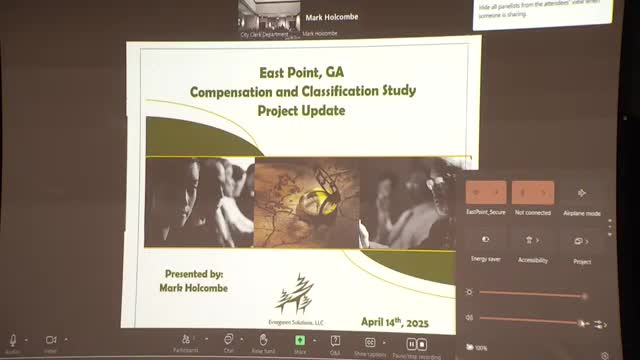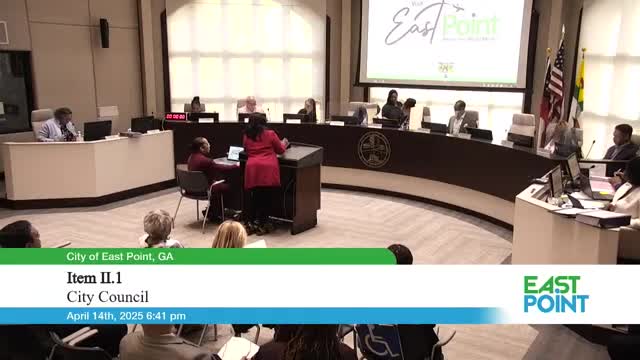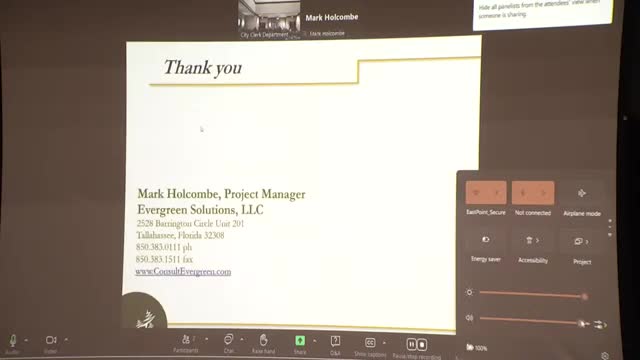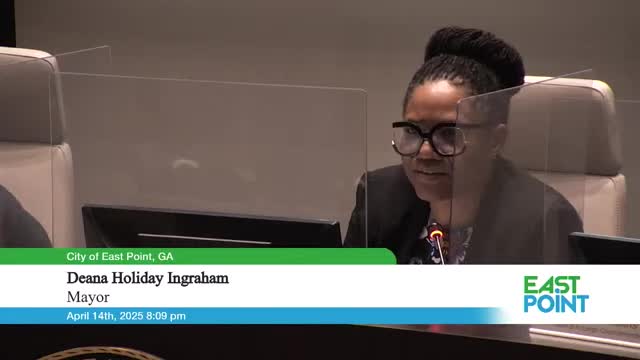Article not found
This article is no longer available. But don't worry—we've gathered other articles that discuss the same topic.

City consultant recommends pay-scale changes; proposed cost ~ $3.13 million including benefits

East Point CVB unveils tourism needs assessment; urges focus on overnight stays, convention space

Council to consider letter of support for Wagon Works Phase 2 affordable housing project

